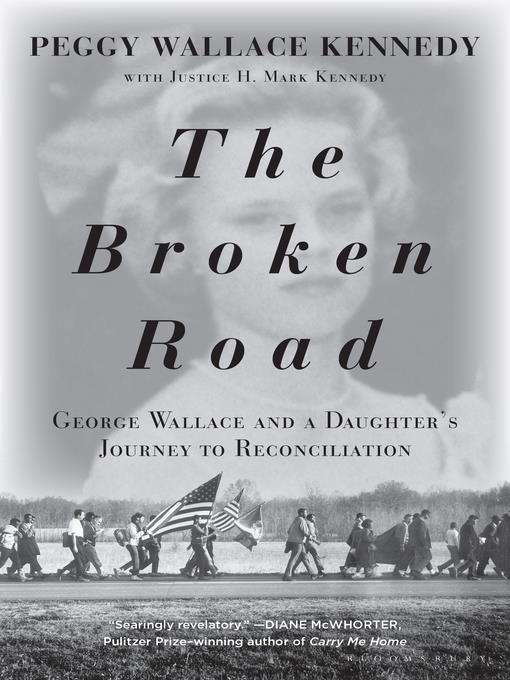
The Broken Road
George Wallace and a Daughter's Journey to Reconciliation
کتاب های مرتبط
- اطلاعات
- نقد و بررسی
- دیدگاه کاربران
نقد و بررسی

July 29, 2019
In this thoughtful, evenhanded debut, Kennedy, the daughter of former Alabama governor George Wallace, reflects on her life with the staunch segregationist. Wallace (1919–1998) graduated law school at 23 and married 16-year-old Lurleen Burns in 1943. He ran for governor in 1958, losing to his opponent’s “promises to keep Alabama white,” which, according to Kennedy, prompted his racist turn and a vow “never to be ‘out-niggered again.’ ” He denied having said it, but Kennedy acknowledges his racist actions, remembering when as governor “Daddy stood in the schoolhouse door” in 1963 at the University of Alabama in an effort to stop the desegregation of the school. Kennedy then recalls her father’s 1972 presidential run (she notes the similarity between Trump’s slogan and her father’s “Stand up for America”) as well as an attempted assassination in 1972 that left him a paraplegic; years later he “repented for his past actions with both words and deeds.” In 2015, Kennedy, marching with Alabama civil rights activist Donzaleigh Abernathy, “wonders how the course of history might have changed if Martin Luther King and Daddy had known these two women would walk hand in hand.” Kennedy’s astute memoir also serves as a probing record of politics and racism in the South.

October 1, 2019
A segregationist's daughter recalls growing up on the wrong side of history in her debut memoir. Kennedy, who lives in Montgomery, Alabama, makes it clear that she has no plans to whitewash the legacy of her father, four-term Alabama governor George Wallace (1919-1998), who proclaimed: "Segregation now, segregation tomorrow, and segregation forever." The author writes that when Wallace denied any role in the brutal assaults on civil rights marchers in Selma, on the day known as Bloody Sunday, he resembled "Pontius Pilate washing his hands" of guilt. However, she tries gently to correct a few misperceptions of her father. When Wallace renounced his views on segregation after an assassination attempt left him a paraplegic, many observers saw it as another crass political move, but the author notes that in private conversations late in life, he was sincerely "ashamed and regretful." She also shows poignantly the toll his actions took on his family and draws parallels between his tactics and those of Donald Trump. Before Wallace persuaded the Alabama legislature to change the law to allow him to serve more than one term as governor, he had his wife, Lurleen, run as his stand-in despite a recent diagnosis of uterine cancer; she died after 15 months in office. The author has suffered from chronic depression and received electroconvulsive therapy for "reactive psychosis caused by stress" even as she's tried to ease others' pain through civil rights activism. She doesn't say whether the ECT helped or how she evolved from loyal daughter to social justice advocate--did she have a Damascene moment?--two of many subjects on which she seems to repress as much as express. Kennedy tells her story well, but she leaves the impression that--whether because of her Southern good manners or because some subjects are still too painful to talk about--her history involves more than she can yet say. A fair-minded memoir and portrayal of an exceptionally divisive civil rights-era politician.
COPYRIGHT(2019) Kirkus Reviews, ALL RIGHTS RESERVED.

























دیدگاه کاربران